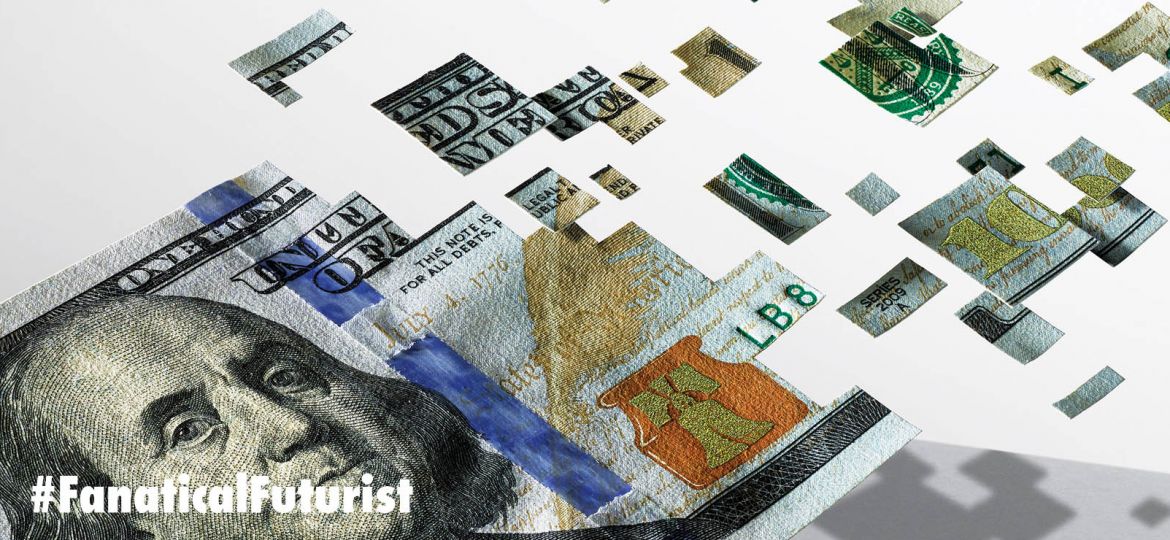
WHY THIS MATTERS IN BRIEF
Experts and governments are predicting that a rising tide of automation will have a dramatic impact on today’s workforce and lower tax receipts, and taxing the machines and robots driving the revolution is becoming an increasingly popular idea.
South Korea has introduced what is being called the world’s first “Robot Tax” amid fears that machines, which because of advances in Artificial Intelligence (AI), Cloud and Machine Vision, are now more adaptable, capable, and even cheaper and faster to train and re-train than ever, in some cases leveraging the power of “Robo-Telepathy” and “Hive Minds” to train entire fleets of machines in mere minutes, are going to increasingly replace human workers and lead to mass unemployment.
As part of the new plans the South Korean government have announced that they are going to limit the tax incentives they give to companies who are investing in automated machines as part of a newly proposed revision of its tax laws, and it’s hoped the policy will make up for lost tax income as more and more workers, such as professional drivers, thanks to the advent of driverless cars, farm and warehouse pickers, who look like they can be replaced by new harvesting and picker robots, and even mining crews and burger flippers, are gradually replaced.
The move, according to the Korean Times, is also thought to be a pre-emptive move to help the country fill its coffers ahead of a predicted rise in unemployment.
Over the past five years hundreds of experts and governments, from Harvard University to Oxford University and from the EU to the US, have predicted that by 2030 robots, or more specifically automation which is any combination of AI, drones, machines, robots and “Robotic Process Automation” (RPA) will have automated away up to 45% of all of today’s jobs, from call center operators and cashiers, to QA Inspectors and wealth advisers, and it’s those reports, which increasingly are being backed up by evidence on the ground, that’s seems to have spurred South Korea into action.
The proposal could come into force at the end of the year, when the country’s current tax law is due to expire.
“Though it is not about a direct tax on robots, it can be interpreted as a similar kind of policy considering that both involve the same issue of industrial automation,” an industry source told the Korea Times.
While Korea is the first country to implement a robot tax it’s not the only one considering it, and a few months ago Bill Gates caused a mini rucus when he called for countries to seriously consider the plan.
“Right now, the human worker who does, say, $50,000 worth of work in a factory, that income is taxed and you get income tax, social security tax, all those things,” said Gates in February in an interview with Quartz, “if a robot comes in to do the same thing, you’d think that we’d tax the robot at a similar level.”
Naturally, companies and robotics firms have criticised the proposals, saying a tax on robots would be detrimental to businesses and impede innovation, but with the levels of automation on the rise, and predicted to rise further and faster, and if, and it’s a big if, the levels of unemployment start to reach intolerable levels the fall out for government and society in general could be, in some cases, catastrophic.
While there are hundreds of experts that say unemployment will rise though there are also other voices that refer to the past, pointing out that previous industrial revolutions too, such as the Agricultural and Industrial Revolutions, have also destroyed jobs but that similarly they’ve also created new jobs in new sectors. However, many experts believe that this time round it’s different because in the past we ostensibly automated manual labour and as a result society created more cognitive roles, but now, this time round, it’s both manual and cognitive roles that are being automated.
Fortunately though many governments aren’t sitting still and an increasing number are starting to discuss, and even trial, such as Canada, Finland and Scotland, new Universal Basic Income (UBI) schemes that will pay people “just for being alive,” so if the apparent inevitable does happen, then at least, in some small way, we might be prepared. But obviously it’s all going to end up being much more “complex than that,” and inevitably companies, which are often Tax-aphobic will find ways round any new Robot Tax laws.
















